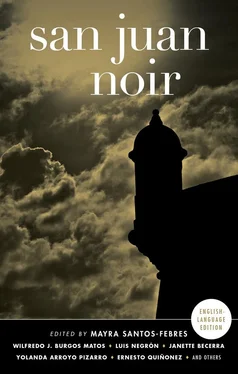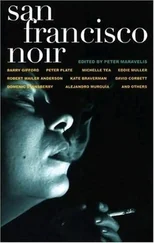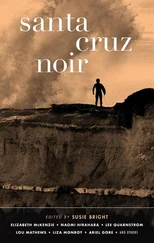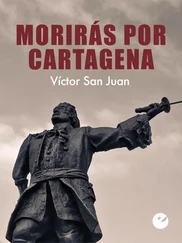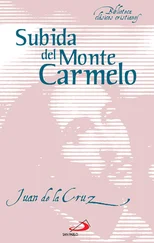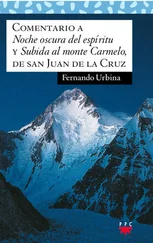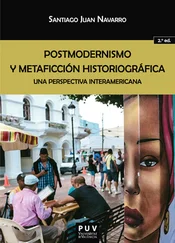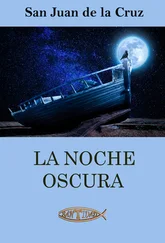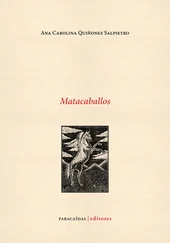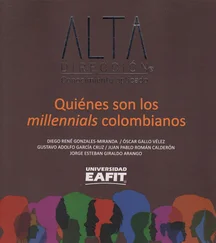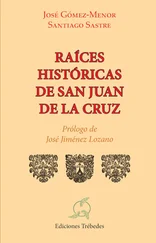Ernesto Quiñonez - San Juan Noir
Здесь есть возможность читать онлайн «Ernesto Quiñonez - San Juan Noir» весь текст электронной книги совершенно бесплатно (целиком полную версию без сокращений). В некоторых случаях можно слушать аудио, скачать через торрент в формате fb2 и присутствует краткое содержание. Город: New York, Год выпуска: 2016, ISBN: 2016, Издательство: Akashic Books, Жанр: Детектив, на английском языке. Описание произведения, (предисловие) а так же отзывы посетителей доступны на портале библиотеки ЛибКат.
- Название:San Juan Noir
- Автор:
- Издательство:Akashic Books
- Жанр:
- Год:2016
- Город:New York
- ISBN:978-1-61775-296-4
- Рейтинг книги:3 / 5. Голосов: 1
-
Избранное:Добавить в избранное
- Отзывы:
-
Ваша оценка:
- 60
- 1
- 2
- 3
- 4
- 5
San Juan Noir: краткое содержание, описание и аннотация
Предлагаем к чтению аннотацию, описание, краткое содержание или предисловие (зависит от того, что написал сам автор книги «San Juan Noir»). Если вы не нашли необходимую информацию о книге — напишите в комментариях, мы постараемся отыскать её.
San Juan Noir — читать онлайн бесплатно полную книгу (весь текст) целиком
Ниже представлен текст книги, разбитый по страницам. Система сохранения места последней прочитанной страницы, позволяет с удобством читать онлайн бесплатно книгу «San Juan Noir», без необходимости каждый раз заново искать на чём Вы остановились. Поставьте закладку, и сможете в любой момент перейти на страницу, на которой закончили чтение.
Интервал:
Закладка:
The night continued with a long monologue about Beto’s studies in comparative literature and languages. I spaced out, remembering my last ex, a professor of English at the university who constantly talked about himself and about his ex-wife who’d taken his apartment and lived there with another woman and three cats. Beto had the same tone of voice and the same smugness. The chatter of this date was just as insufferable. “And that’s why I hate cats,” he said. I went to order two drinks. I looked at the clock. We’d been talking for forty-five minutes. Another guy who hates cats, I thought. He must’ve also been dumped for being an idiot.
“Why do you hate cats?” I asked him when I got back. He started to tell me about the cats of Cortázar, some other writer. Of course, then he complained about his last girlfriend, how she slept with her cat and how the cat’s hair on the bed disgusted him. I thought about taking my revenge against his idiocies. I also thought about Mita, who disappeared down the street to the rhythm of the pleneras.
My friends were sitting and kissing among the avocado trees on the little plaza, and I asked Beto for a triple shot of vodka on the rocks. He’d had a shot of B-52 and I’d had a whiskey on the rocks. Alcohol helps me move apathetically in the face of cretinism. He continued his monologue, culminating in another of his poems. This was the vilest, most damned Innocent’s Day in my whole life. As tends to occur, he began to get clingy, cheesy, cunning. I remembered what my mother once told me: there are some men who are just like a bottle of beer — from the neck up, there’s absolutely nothing.
“I’m leaving,” I said.
“I’ll walk you.”
“No, I live nearby down Canals, turn on Primavera, and keep going to Estrella, straight up to Bayola.”
“Look, beautiful, it’s dangerous for a woman to go that way alone, I’ll walk you. Besides, the night can’t just end so quickly.”
I stared at him, waiting for him to comprehend that he was fucking up my night. What a cesspit of a man. “I’m leaving now,” I told him.
“Don’t be silly, it’s still early. C’mon, Ángela, don’t be mad.” The poet moved closer, almost grazing his chest against mine, running his hand across my hip.
“I’m leaving.”
“Don’t be mad.”
“I’m leaving.”
“I’ll walk you. Really, it can be dangerous.”
“Let’s go then, but be quiet and don’t touch my ass.”
I picked up my pace. We were passing under the graffiti-covered bridge, and in the distance I saw Mita disappearing into the shadows. I smiled. Beto was beside me, he stroked my back, resuming his monologue, and brought his hand down to grab mine. I felt the brush of his lips against my neck, like a poltergeist. I pulled away and shoved him. He fell down in the street and groaned. He was drunk, and when he tried to stand up, he slipped and fell again. Unfortunately for him, a car was passing by at full speed, and it hit him.
I hid around a corner at the end of the bridge. I’d heard the crunch of his bones, his moan mixed with the whisper of blood escaping his mouth. The driver had fled. My soul took flight too, escaping through my throat. I hurried to my apartment, assuming the worst, imagining his body crushed like a trampled dove. I was so scared that I thought I was dying as I tried to open the door to my apartment.
I poured myself a glass of wine and stayed in the little room with my computer. I looked at my hands, which shook, and drank, drank, and shook. I got a text from Margarita asking where I was. I replied that I’d escaped from Beto because he was a waste of time, that he’d gone to buy some drinks at Velázquez, and so I’d left. Margarita texted me that she thought she’d seen him talking to some friends of hers. Could he be alive? Impossible. I didn’t tell her what’d happened, danger disappears if you ignore it. I wrote: Don’t set me up on any more blind dates. She replied with a sad face and told me good night, the next time she’d find me someone more fun.
I kept drinking wine and writing. My hands, fallen into insomnia, kissed psychedelic shadows that wrapped themselves in the silence of the pathetic memories of that night, of old exes and future loves, until I fell asleep. I got an unexpected text, an ex who wanted to see me, he was drunk, no doubt. I dreamt again about the poet’s blood, about Mita, and about a poem dancing in my bedroom.
I woke up at sunrise with the sensation that it all had been an illusion. I was confused. The whispers of loneliness suffocated me. I opened the door of my apartment and saw a dead dove. I closed it quickly and slid the little chain. Terror gripped my spine. I looked at my phone: no calls. I turned on the news: they weren’t covering the poet’s death. And yet, I expected that they’d come to arrest me any minute. I ate a light breakfast and wrote all day long, as well as the next day and the next, trying to free myself from my amputated memories.
I didn’t leave my apartment until New Year’s Eve. Mami had called to have me come over on New Year’s with them. I went as far as the door, lay down to peek below it, saw nothing. My hands shook, I made it into the hallway. In the area in front of the building’s entrance, some kids were playing with a ball, and Doña Cleo, the lottery ticket vendor, gave me a number for free. I went to a nearby supermarket that had a cafeteria, and I ordered rice with chicken, potato salad, and the newspaper. I texted Margarita and she replied that she was in New York with her cousins.
I took out my notebook so I could write while I ate, and I remembered the voice that’d called to Mita, so similar to mine, almost my own voice — the moment that I knew I wasn’t alone. It isn’t loneliness that suffocates me, but the recycling of pasts, the shadows of the witching hour, my Aunt Mabel reproaching me for not marrying or having kids, going to a party and right away someone asking about my ex, or why I don’t have a boyfriend, or why I work in a bookstore when I could be a university professor. What’s suffocating about loneliness is other people. For a few seconds I felt bad for Beto, but I rid myself of the feeling quickly. Some memories bring negative consequences. I kept writing.
I listened to my neighbor, girl of the eternal dubi dubi, who was protesting into her cell phone because she’d called the salon and they didn’t have a single appointment available to dye her hair and fix her nails. “The biggest tragedy since Fortuño lost the governorship,” she said. I couldn’t write anymore. I got up, wanting to tell her what I really thought: Who do you think you are? Do you think your life matters to anyone? Instead, I went to buy some wine and cheese to take to Mami’s house. In the hallway, I ran into the neighbor girl and muttered, “Cunt.”
I went down Calle Loíza toward the intersection with San Beto. There was an AMA bus at the stoplight. I looked at the window. There was a girl there, reading; she lowered the book and looked at me with a slightly surprised smile. My reaction was the very same smile and a powerful attack of arrhythmia. The light turned green, the bus continued on its way, and I continued on mine toward San Beto. One by one, my footsteps sank into the memory of the woman in the window. She looked just like me, I was certain. I felt a little light-headed and sat down in the parking lot across from the synagogue. I lowered my head. I was sweating, a cold sweat. I opened my eyes and Mita was sitting beside me. I tried to touch her, but she moved quickly off toward a nearby Catholic school, and I headed on to the condo where Mami lived, just past the children’s hospital.
That night I rang in the new year in Mami’s apartment, with my three brothers, their wives, and my nieces and nephews; also Julio, a neighbor from Spain who was a cook at a pizzeria in Hato Rey. The kids watched YouTube videos on a tablet, my mom prepared rice and beans, and my brothers and sisters-in-law talked about their jobs, inescapable even on vacation. Their lives are as small as their offices, like worlds all their own where the rest of us are invisible.
Читать дальшеИнтервал:
Закладка:
Похожие книги на «San Juan Noir»
Представляем Вашему вниманию похожие книги на «San Juan Noir» списком для выбора. Мы отобрали схожую по названию и смыслу литературу в надежде предоставить читателям больше вариантов отыскать новые, интересные, ещё непрочитанные произведения.
Обсуждение, отзывы о книге «San Juan Noir» и просто собственные мнения читателей. Оставьте ваши комментарии, напишите, что Вы думаете о произведении, его смысле или главных героях. Укажите что конкретно понравилось, а что нет, и почему Вы так считаете.
